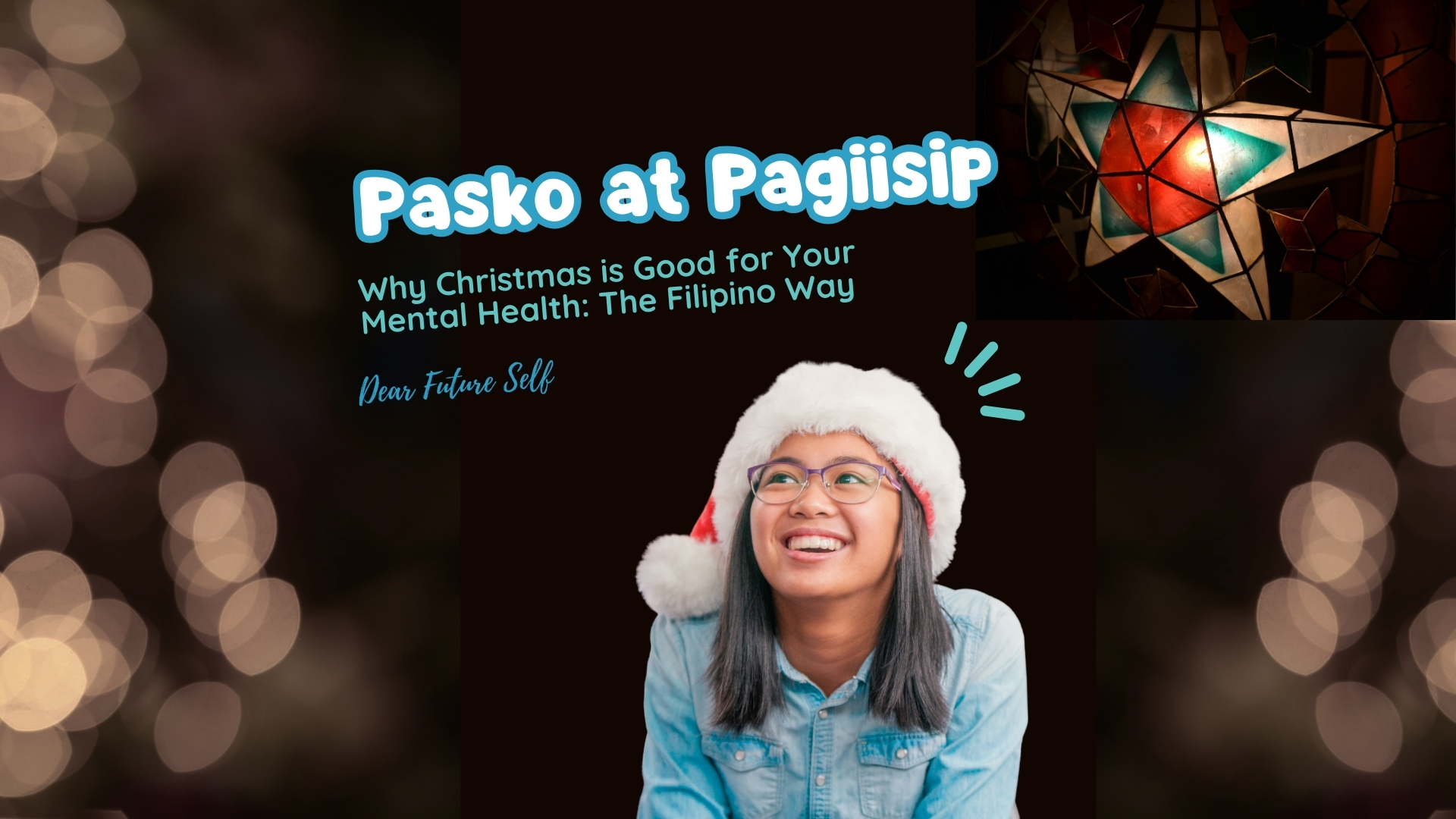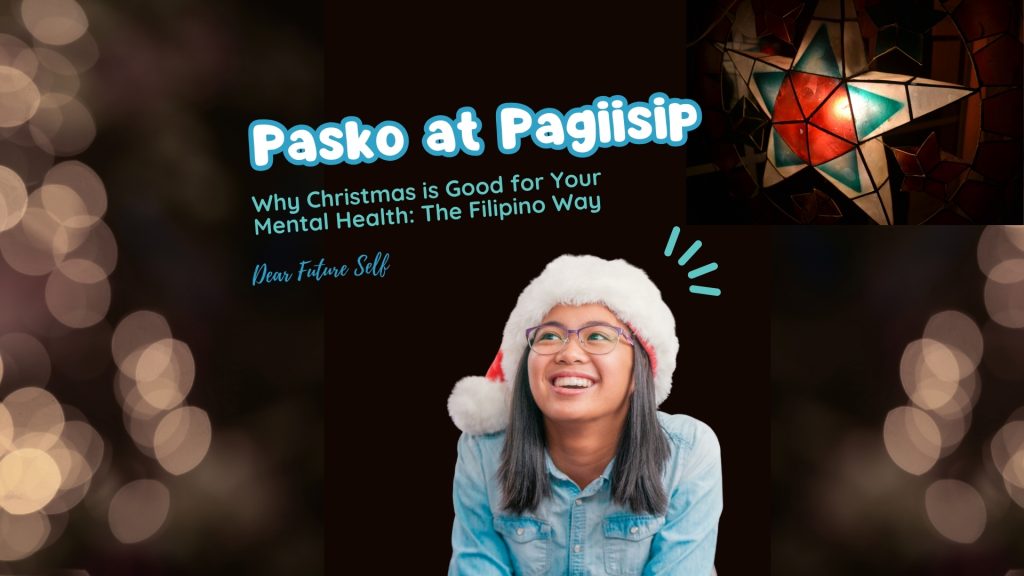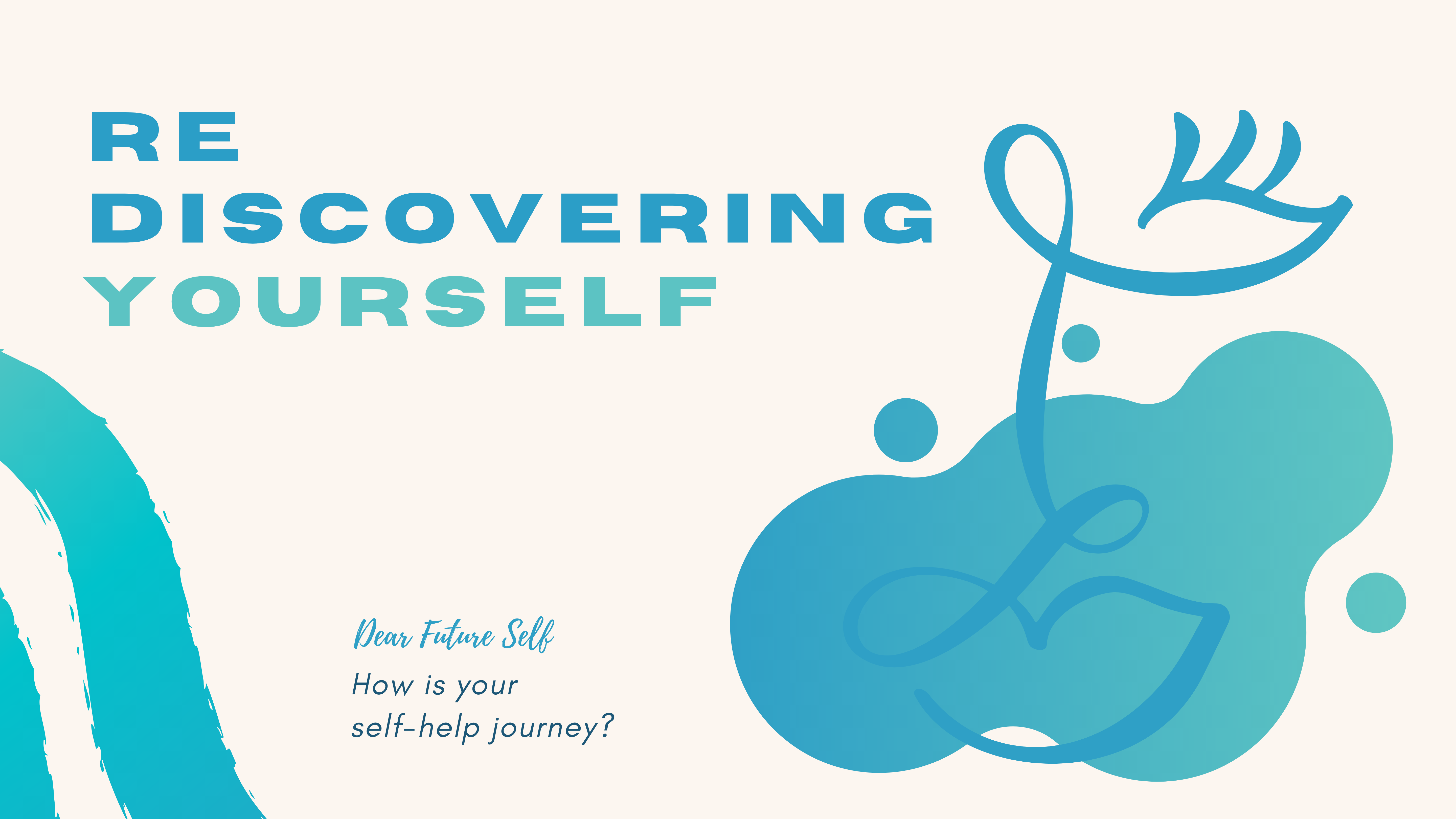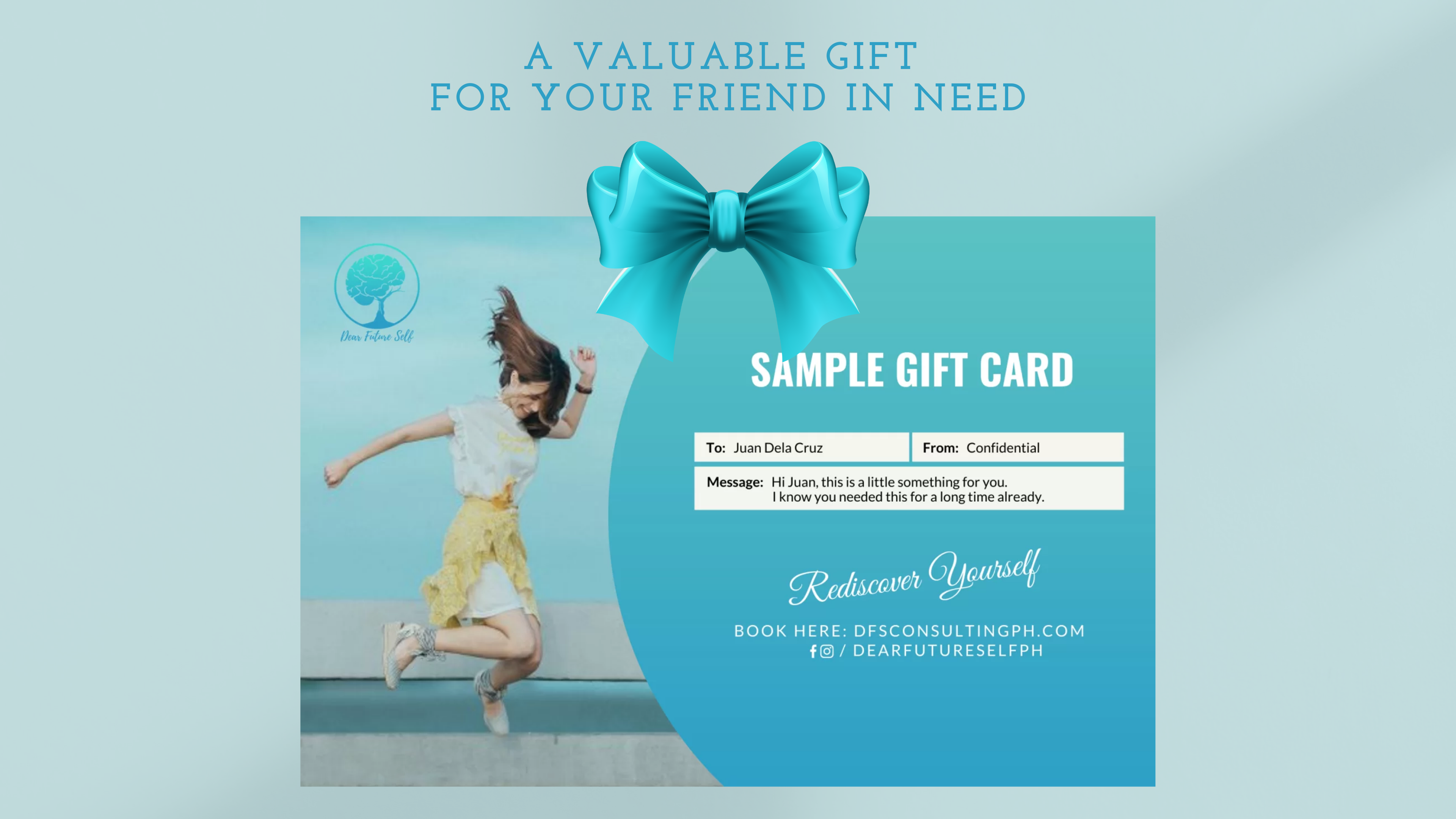
02 Sep How Celebrating Christmas Supports Mental Health
Pasko at Pag-iisip: Why Christmas is Good for Your Mental Health: The Filipino Way
Why Christmas arrives early in the Philippines? and why that matters
In the Philippines, the “-ber months” (September–December) signal the informal start of the Christmas season. Radio stations and malls begin playing carols as early as September 1, Jose Mari Chan memes reappear online, and families start planning Simbang Gabi and Noche Buena. This extended timeline isn’t just cultural color… it lengthens opportunities for social connection, hope, and routines that buffer stress.
What researches say about Christmas and mental health
1) Lower crisis utilization during Christmas (with a post-holiday rebound to watch for)
Multiple reviews and time-series studies across countries find fewer psychiatric emergencies and hospitalizations and lower suicide and self-harm rates during the Christmas period, likely reflecting increased social contact and community rituals, followed by a rebound after the holidays. Clinicians and families should therefore enjoy the protective window while staying vigilant into late December/January.
Practical takeaway: Lean into connection during the season, and plan supports that continue into early January (when “post-holiday blues” can surface).
2) Music and group singing boost bonding, mood, and stress regulation
Filipino Christmas is steeped in music… from caroling to choir service. Research shows group singing rapidly increases social bonding (“ice-breaker effect”), positive affect, and feelings of inclusion; physiological studies point to endorphin-linked pain thresholds and stress reduction benefits. Reviews of choir participation also report improvements in well-being and anxiety.
Practical takeaway: Join (or form) a small caroling group, church choir, or family sing-along. Even informal singing can deliver benefits.
3) Prosocial giving and gratitude practices amplify happiness
Christmas traditions of gift-giving (“aguinaldo”), bayanihan drives, and church offerings map onto a robust literature: spending on others (prosocial spending) reliably increases happiness across cultures, and gratitude exercises (journaling, letters) improve mood and reduce anxiety/depressive symptoms in randomized trials.
Practical takeaway: Set a “give small, give often” plan (e.g., weekly acts of giving) and keep a brief gratitude journal through the season.
4) Rituals, faith, and meaning-making provide structure and belonging
Core Filipino practices: Simbang Gabi, parol displays, and neighborhood gatherings are structured rituals that promote predictability, shared identity, and social support, each protective for mental health.
A Philippine “mental health toolkit” for the -ber months
- Schedule connection early. Lock in Simbang Gabi meetups, potlucks, or volunteer shifts before December rush… then keep one “connection date” in early January to blunt the post-holiday dip.
- Sing together. Family karaoke, parish choir, or barangay caroling all count; even short sessions can lift mood and bonding.
- Practice prosocial giving. Redirect a small weekly amount to a person or cause you can see/feel connected to; connection enhances the “warm glow.”
- Keep a gratitude micro-journal. Three lines a day from September to January, then extend for 2–3 weeks into the new year.
- Mind the rebound. Normalize the “after-party” slump; preserve sleep, routine, sunlight exposure, and movement into January. Seek help if low mood persists.
When Christmas doesn’t feel joyful: What you can do
While many Filipinos find Christmas uplifting, others may experience stress, loneliness, grief, or anxiety during the season. This is sometimes called the “holiday blues”. Financial pressures, family conflict, separation from loved ones, or memories of loss can all make the season feel heavy. Research on post-holiday stress highlights that mood dips and distress are not uncommon after or even during festive times.
Here are some evidence-based strategies to cope if you don’t feel good during the holidays:
- Acknowledge your feelings.
It’s normal not to feel festive all the time. Suppressing sadness or grief may worsen stress. Mindfulness-based approaches suggest that naming emotions helps reduce their intensity - Set realistic expectations.
You don’t have to meet every invitation or create a “perfect” holiday. Research on stress and well-being emphasizes that flexible expectations reduce distress. - Prioritize self-care.
Maintain healthy routines with balanced meals, adequate sleep, sunlight, and physical activity. Exercise, even short walks, has been shown to improve mood and lower anxiety. - Seek connection, even in small doses.
If large gatherings feel overwhelming, spend time with a trusted friend, join a community volunteer activity, or connect online. Social support is one of the strongest predictors of resilience. - Help others.
Volunteering or participating in outreach can shift focus outward and foster meaning, consistent with studies linking prosocial behavior with improved happiness. - Reach out for professional help if needed.
If sadness, anxiety, or emptiness persist beyond the season, it may be time to consult a mental health professional at Dear Future Self PH.
A balanced view: Joyful….yet not universally easy
Not everyone experiences the season as protective; finances, grief, and family conflict can raise stress for some. The data suggest average reductions in acute crises during Christmas but highlight the importance of post-holiday monitoring and support. If the season is tough, reaching out to friends, support communities, or hotlines remains vital.
Christmas in the Philippines stretches from September jingles to January reunions. For many, it’s a source of joy, connection, and resilience, but it’s also okay if the season feels difficult. Whether by leaning into rituals of faith and family or by seeking support and creating new traditions, you can find a path that protects your mental health.
By caring for your well-being during the holiday season, you are also giving a gift to your ![]() … one that carries hope, strength, and resilience into the new year.
… one that carries hope, strength, and resilience into the new year.
References:
Aknin, L. B., Dunn, E. W., & Norton, M. I. (2008). Spending money on others promotes happiness. Science, 319, 1687–1688.
Dunn, E. W., Aknin, L. B., & Norton, M. I. (2014). Prosocial spending and happiness. Current Directions in Psychological Science, 23(1), 41–47.
Diniz, G., et al. (2023). The effects of gratitude interventions: A systematic review and meta-analysis of RCTs. BMC Psychology.
Hillard, J. R., et al. (1981). Christmas and psychopathology: Data from a psychiatric emergency service. JAMA Psychiatry.
Plöderl, M., & Fartacek, R. (2015). Nothing like Christmas—suicides during Christmas and other holidays. European Journal of Public Health, 25(3), 410–413.
Sansone, R. A., & Sansone, L. A. (2011). The Christmas Effect on Psychopathology. Innovations in Clinical Neuroscience, 8(12), 10–14. (Review).
Schneider, E., et al. (2023). Who is afraid of Christmas? The effect of Christmas and Easter holidays on psychiatric hospitalizations and emergencies—systematic review and single-center experience (2012–2021). Frontiers in Psychiatry.
Pearce, E., et al. (2015). The ice-breaker effect: Singing mediates fast social bonding. Royal Society Open Science, 2:150221.
Weinstein, D., et al. (2016). Changes in connectivity and pain threshold as a function of social singing. Evolution and Human Behavior, 37(2), 152–158.
Williams, E., et al. (2018). A systematic review of mental health and wellbeing outcomes of group singing for adults with a mental health condition. European Journal of Public Health, 28(6), 1035–1042.
Gift Certificates & Self-Care Package
Connect with Us





